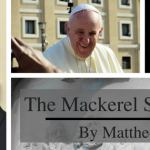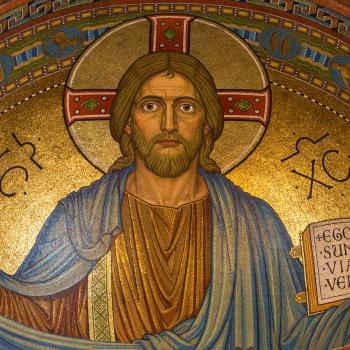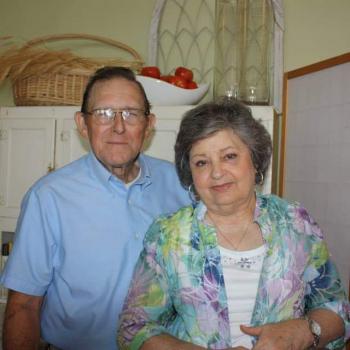During the final, heated months of the 2016 presidential election, the DNC was hacked and a treasure trove of emails was leaked to the public.
In one particular email, dated in 2012, John Podesta and Sandy Newman discuss the potential for a “Catholic Spring”—aka a progressive uprising—within the Church. In one reply, Podesta mentions by name a particular non-profit through which a “spring” could, theoretically, be initiated: Catholics in Alliance for the Common Good (CACG). Podesta wrote:
“We created Catholics in Alliance for the Common Good to organize for a moment like this.”
Now, for anyone who doesn’t spend most of their time in the Catholic online community, let me tell you—this email set off a freakin’ firestorm.
Blog after blog after blog came pouring out, criticizing CACG and denouncing them as a “Trojan Horse” (I was even referred to as a “Podesta Catholic” on more than one occasion). And honestly, at face value, one could see some legitimacy in the outcry. Podesta’s email certainly looks damning, especially when you consider that one of the organizations founders, Tom Perrillo, is a Democratic Politician.
But like anything else in the world, the outrage hardly tells the whole story. The truth is that CACG isn’t some sinister cover operation to infiltrate the Church. In fact, it’s quite the opposite. And recently, I had the opportunity to speak with Christopher Hale, executive director of CACG, to get more insight into the organization and learn why they actually exist.
“The factuality of those claims were just wrong,” said Hale in response to the emails (which were actually leaked when Hale was still in college). “It represented a misunderstanding of the work we do day in and day out. And of course, in the context of it being within a month of the election, it was up to a new degree.”
Hale received multiple death threats, hateful emails, and attacks from online trolls in response to the leaks. Still, none of it seemed to deter him from what he sees as CACG’s real mission: promoting the Church’s—and Pope Francis’—message of social justice and respect for human dignity via politics, media, and culture. And that mission, deemed the “loyal opposition”, has no political agenda—not to the Democrats and (quite obviously) not to the Republicans.
“The only spring for revolution that the care about is the revolution that Pope Francis has called for, in politics and in culture,” said Hale. “We think the gospel is compelling. We think it has moral, social, and political obligations. And what we do every day is try to bear those in American politics.”
Though it’s true that CACG’s heavy focus on social justice does tend to attract more progressively minded followers, the organization is no stranger to criticism from those on the secular left—especially for their unwavering positions on abortion and religious liberty.
“We’re never going to be part of the partisan movement,” Hale said. “We’re always going to challenge both parties. And it’s really important to me that, before anything else, we’re Catholic first.”
In fact, Hale takes attacks from both sides of the aisles as a sign of CACG’s effectiveness, saying:
“A good priest upsets every one of his parishioners at some point,” Hale said. “And I think a Catholic organization involved in politics has to do the same.”
Of course, the nonconforming nature of Catholic Social Justice is exactly what makes it so difficult to promote in the current American political climate, and it’s very difficult for many Catholics to feel 100% comfortable in any party without first abandoning crucial Catholic principles.
In response, there has been a movement in the Church known as the “Benedict Option”, which, as defined by original proponent Rod Dreher “refers to Christians in the contemporary West who cease to identify the continuation of civility and moral community with the maintenance of American empire, and who therefore are keen to construct local forms of community as loci of Christian resistance against what the empire represents.”
Basically, it’s the idea that Christians should opt out of politics and secular life altogether, form their own communities, and let the “American Empire” take its own course. It’s gained some significant support in many Catholic circles, but Hale feels the Benedict Option is no option at all for Christians (and I agree).
“I think that is an option that is not Christian at heart. I think the idea of opting out of the gritty politics of the United States because it’s hard is not the Christian way. We have to get involved with the messiness of politics.”
In fulfilling this obligation, CACG is guided by Catholic principles, but with a keen understanding about the reality of politics.
“You have to play ball,” he said. “You have to be willing to move progress forward, even when we’re not always going to get what we want. Too many Catholics sit on the sidelines because they operate on principles alone, and not the reality of making life a little more just and a little less cold.”
Even still, many Christians in America who do choose to involve themselves in politics, regardless of what side of the aisle they’re on, often struggle to get past partisan ideology and put justice first. We’ve seen plenty of Catholic Democrats bend on abortion and religious liberty, and many Catholic Republicans turn their backs on the needs of the poor.
To this, Hale believes we need to rededicate ourselves to what Christ called us to do in the first place.
“Jesus tells us in Matthew that God will judge the nations based on how they treat the least of these. And so there’s this idea that God doesn’t just judge us as individuals, but he judges our communities as well. And I would challenge any Christian that wants to get involved in public life to remember that.”
Moreover, Hale says there are “a million different ways” we can protect the least of these, but that we must first agree that that is the ultimate goal. Citing James Madison in Federalist 51, Hale says we all have to recognize the important role that government plays in ensuring justice for the public.
Of course, none of this can come to fruition without everyone at the table. In order to move the ball forward, we’re going to have to realize that neither side has all the answers. We must be willing to cross party lines and work with the opposition. And while that possibility may seem bleak in the current climate, Hale believes the antidote lies within the Millennial generation—a long as they’re willing to get back to the basics of the Gospel.
“The big thing Millennials have to do is promote the basic, bread and butter of the Gospel in public life. We get so caught up in the minutia of policy that sometimes we forget the entire holistic view of the Gospel. We have to go back and promote the basics in a way that is open and inclusive.”
If you’d like to learn more about CACG, their mission, or how you can get involved, check out their website or follow them on Facebook.












